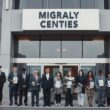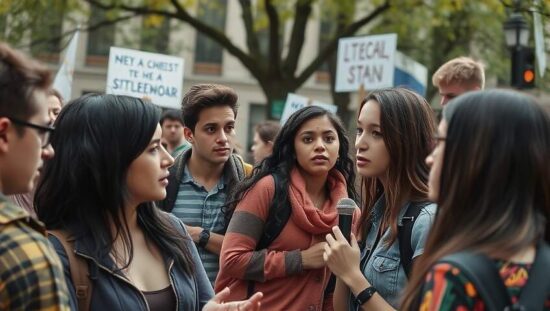The youth wing of the German Green Party is openly criticizing its parent organization for a perceived lack of political conviction and a tendency toward compromise, raising questions about the party’s direction ahead of a crucial party conference this week. Luis Bobga, co-chair of the Green Youth, voiced concerns to the Süddeutsche Zeitung, arguing that the party’s approach to recent debates, particularly regarding urban development, demonstrates a failure to act with sufficient boldness.
Bobga specifically condemned Chancellor Scholz’s statements on urban environments as “racist” accusing the Greens of hesitating to publicly label them as such, citing a possible desire to maintain cordial relations with other political factions. This reluctance, he asserted, represented a “missed opportunity” to redefine the party’s public image and reaffirm its commitment to supporting vulnerable populations.
The critique extends beyond isolated incidents. Bobga and co-chair Henriette Held are urging a strategic realignment of the party’s broader policy platform. They argue that the Green Party’s core values have become obscured, demanding a clearer and more assertive message for the next federal election. This includes a firm rejection of any form of mandatory service, including discussions surrounding potential compulsory societal service or revised conscription processes, which the Green Youth intends to explicitly convey at the upcoming party conference. They advocate for a more comprehensive approach to national security, emphasizing broader societal engagement rather than simply recruiting more young people into the armed forces.
Furthermore, the Green Youth is pushing for a shift in the party’s policy stance towards the left, particularly on issues of housing affordability. Bobga specifically called for a nationwide rent control system allowing municipalities to implement measures that would freeze rents for a five-year period, directly impacting a significant portion of the population. This proposal, he believes, would demonstrate the Green Party’s seriousness in tackling what they see as the most pressing social challenge of our time.
The calls for bolder action have found an echo within the Green Party itself. Marcel Emmerich, the parliamentary group’s domestic policy spokesperson, acknowledged the need for courage and clarity, pointing to the success of progressive leaders like New York City’s Zohran Mamdani as evidence that a firm stance, combined with a tangible policy agenda, can resonate with a wide range of voters. The internal debate highlights a potential fracture within the Green Party, pitting a desire for pragmatic coalition building against a younger generation advocating for a more radical and uncompromising political agenda.





